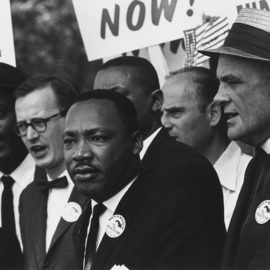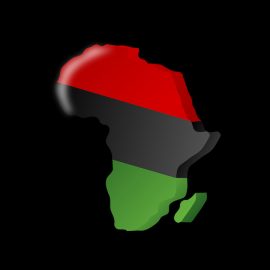

This article is an excerpt from the Shortform book guide to "Mountains Beyond Mountains" by Tracy Kidder. Shortform has the world's best summaries and analyses of books you should be reading.
Like this article? Sign up for a free trial here .
When did Jean-Bertrand Aristide become the president of Haiti? How long did his presidency last and why did it end?
Jean-Bertrand Aristide was a Catholic priest and the ousted president of Haiti. In October 1994, Aristide was reinstated as president with the help of a medical doctor and anthropologist Paul Farmer.
Read more about Jean-Bertrand Aristide, including his political rise, fall, and second coming to power.
Political Upheaval in Haiti
From 1957 until 1986, Haiti had been under the rule of the Duvalier dictatorship, which was propped up by the US and did little to fund social services or infrastructure improvements, for decades.
When the Duvalier dictatorship ended in 1986, the power was taken over by the Haitian army. It is at this time that Haitians began questioning the role of their government. People had hoped that things would change with the end of the dictatorship, but instead, things seemed to stay exactly the same. They started staging demonstrations and were met with harsh crackdowns from the military, who shot demonstrators, hospital patients, and people waiting in line to vote.
Most demonstrations happened closer to the capital, but people in rural areas started to ask questions, too. For example, people started to recognize that sickness stemming from dirty water had just as much to do with the government refusing to spend money to build clean drinking water infrastructure as it did with pathogens.
The Rise and Fall of Jean-Bertrand Aristide
The rule of the Haitian army came to an end in 1990 when Jean-Bertrand Aristide, a Catholic priest and a leader of liberation ideology in Haiti, won the election with 67% of the vote. However, Aristide’s presidency was short-lived. In September 1991, The Haitian army removed Jean-Bertrand Aristide from power and blacklisted his supporters from entering the country.
With Aristide out of power, the Haitian army resumed making life difficult for the Haitian people, particularly Aristide’s supporters. For example, one local man was beaten to death after commenting on the poor condition of the highway on the way to his village.
One of Aristide supporters – a medical doctor and anthropologist Paul Farmer – wrote an opinion piece in the Miami Herald advocating for a military intervention in Haiti to restore Jean-Bertrand Aristide to power. He reasoned that over the course of Haiti’s history, US meddling had mostly propped up leaders sympathetic to US interests. Now, the US needed to wield its power to help restore a rightfully elected democratic leader. In response, the Haitian government banned Farmer from entering the country.
Farmer used his banishment to talk to different audiences about Haiti’s politics. He testified to a congressional committee about Haiti’s military rule, but many of the representatives were asleep, or didn’t think Farmer understood the situation. He also tried speaking to people in small towns in the south and midwestern US, including on the radio, but received push-back from people who saw Farmer as an extremist.
But some people listened to Farmer, and in October 1994, the Clinton Administration helped reinstate Jean-Bertrand Aristide to power.

———End of Preview———
Like what you just read? Read the rest of the world's best book summary and analysis of Tracy Kidder's "Mountains Beyond Mountains" at Shortform .
Here's what you'll find in our full Mountains Beyond Mountains summary :
- How Dr. Paul Farmer came to operate a hospital in Haiti
- What the connection is between sorcery and tuberculosis
- How Dr. Farmer's organization is a model for treating patients in poor countries






